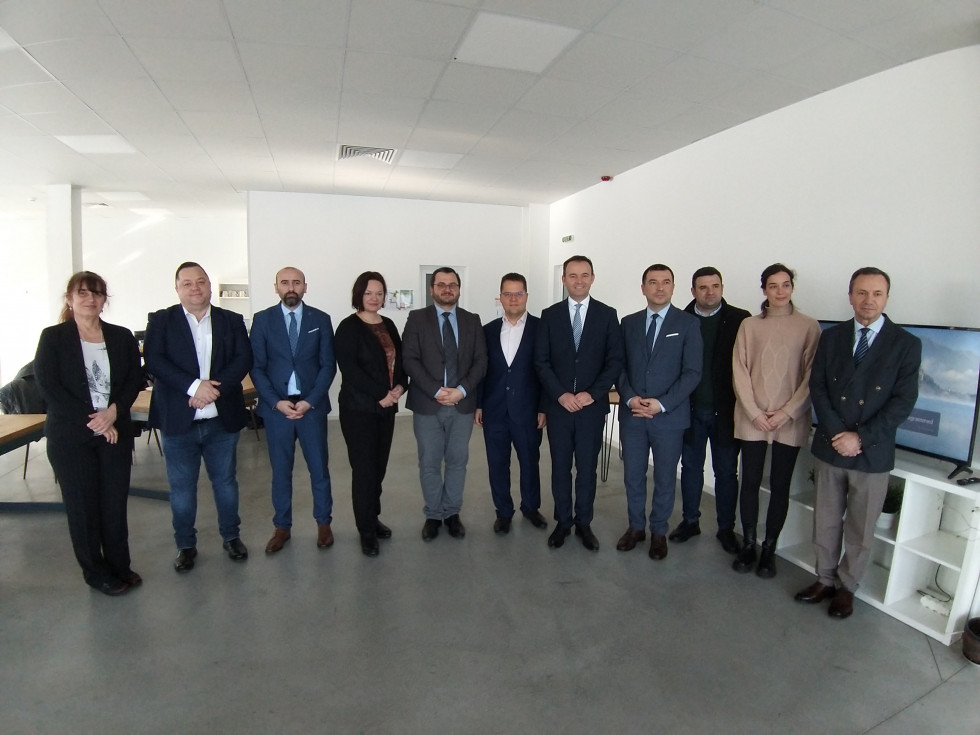State Secretary Buzeti at the conference on regional food security in times of crisis

Participants at the conference in Bulgaria | Author Ministry of Agriculture, Forestry and Food
The conference, organised by the Ministry of Agriculture of the Republic of Bulgaria, was attended by representatives of the Ministries of Agriculture of Slovenia, Montenegro, Kosovo, Croatia, Moldova, Greece and Romania. Participants discussed the changes in food security in the wake of the recent global crisis. They discussed inflation and access to raw materials, transport routes, the impact of climate change on the agricultural sector and the promotion of local production and short supply chains.
The consequences of the crises threaten the food security of the Balkan countries and beyond. The combination of high energy prices, production costs and fertilisers is undermining farmers' competitiveness. Inflation increased in 2022 in all countries. The transition from one crisis to another requires finding opportunities to support agricultural producers to remain competitive and ensure the production of agricultural products, and it allows countries with similar structures to find new ways of cooperation.
The agricultural sector has undergone major changes in recent decades due to political, crisis and climate change. Many countries have highlighted the just adopted Common Agricultural Policy Strategic Plans 2023-2027, which are key programming documents in the agricultural sector and provide support to countries for integration, technology improvements and overall progress in agriculture.
Focusing on sustainable systems and cooperation at all levels is the only real vision for ensuring long-term food security in Europe and adapting to climate change and changes in lifestyles and eating habits. "Every year, events in nature remind us that the well-being of present and future generations is at stake and that food security should not be taken for granted, despite the illusion of prosperity and technological progress," said State Secretary Buzeti.
Food systems are essential for the development of society and should include everything from the sourcing, production, processing, transport, trade and consumption of food and their impact on the environment, health and society. To ensure food security in the future, awareness of the importance of local food needs to be strengthened in the Balkan countries and their neighbours, as it can make an important contribution to environmental goals by reducing the environmental footprint. This is why Slovenia considers organic farming to be the right choice, as it meets the objectives of sustainable development and is a model example of a green or circular economy. Technological developments, short supply chains and shifts in consumer and policy maker attitudes towards locally produced food will be key success factors for a secure food system in the future.
The conference also focused on cooperation between participating countries, which can contribute to addressing the consequences of the crisis in the agricultural sector. Cooperation in research, innovation, technological progress and in guiding development towards a circular economy is important.
Participants also visited a good practice example – a company processing organic products: bars, biscuits, beverages – Smart Organic in Sofia.

